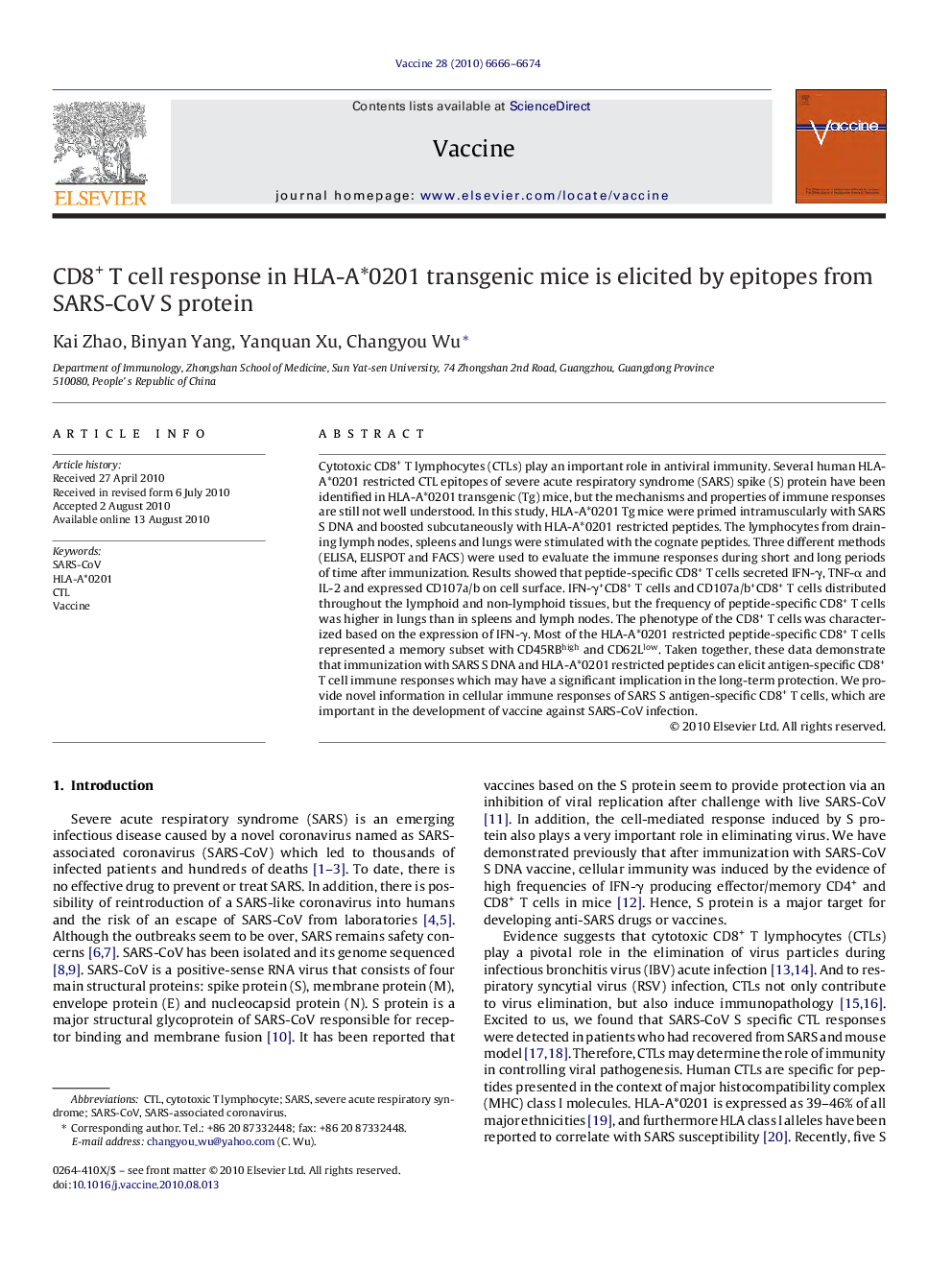| Article ID | Journal | Published Year | Pages | File Type |
|---|---|---|---|---|
| 2404192 | Vaccine | 2010 | 9 Pages |
Cytotoxic CD8+ T lymphocytes (CTLs) play an important role in antiviral immunity. Several human HLA-A*0201 restricted CTL epitopes of severe acute respiratory syndrome (SARS) spike (S) protein have been identified in HLA-A*0201 transgenic (Tg) mice, but the mechanisms and properties of immune responses are still not well understood. In this study, HLA-A*0201 Tg mice were primed intramuscularly with SARS S DNA and boosted subcutaneously with HLA-A*0201 restricted peptides. The lymphocytes from draining lymph nodes, spleens and lungs were stimulated with the cognate peptides. Three different methods (ELISA, ELISPOT and FACS) were used to evaluate the immune responses during short and long periods of time after immunization. Results showed that peptide-specific CD8+ T cells secreted IFN-γ, TNF-α and IL-2 and expressed CD107a/b on cell surface. IFN-γ+CD8+ T cells and CD107a/b+CD8+ T cells distributed throughout the lymphoid and non-lymphoid tissues, but the frequency of peptide-specific CD8+ T cells was higher in lungs than in spleens and lymph nodes. The phenotype of the CD8+ T cells was characterized based on the expression of IFN-γ. Most of the HLA-A*0201 restricted peptide-specific CD8+ T cells represented a memory subset with CD45RBhigh and CD62Llow. Taken together, these data demonstrate that immunization with SARS S DNA and HLA-A*0201 restricted peptides can elicit antigen-specific CD8+ T cell immune responses which may have a significant implication in the long-term protection. We provide novel information in cellular immune responses of SARS S antigen-specific CD8+ T cells, which are important in the development of vaccine against SARS-CoV infection.
